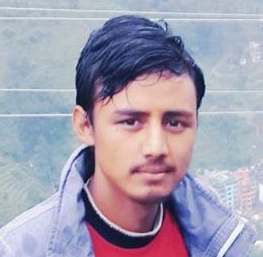Money
Businesses along Arniko Highway suffer due to Chinese border closure
Before the earthquakes of April and May, 2015, Sabita Karki, who runs a hotel at Sagachowk, Sukute, on Arniko Highway, never used to find time to sit idle.
Anish Tiwari
Before the earthquakes of April and May, 2015, Sabita Karki, who runs a hotel at Sagachowk, Sukute, on Arniko Highway, never used to find time to sit idle. She used to find herself attending to the guests from morning till the evening.
“We used to receive so many guests, we couldn’t even accommodate all of them,” she says, reminiscing the days when her business was brisk.
Now, the place bears a forlorn look. “We used to conduct business worth hundreds of thousands of rupees per day,” she says. “Today, we don’t even generate 10 percent of that income.”
Many like Karki are now facing the same problem—a problem triggered by the Chinese government’s decision to halt movement of people, goods and vehicles through Tatopani border point.
Prior to 2015 earthquakes, Tatopani used to be the largest Nepal-China cross-border trade route. Hundreds of cargo vehicles and hordes of people used to pass through this way every day, creating ample business and job opportunities for the people.
But these days only local buses and few tourist vehicles ply on this highway.
Officially, the Chinese government has cited geographical vulnerability of Khasa as the reason for shutting down the trade route. But even after the Nepal government proposed to set up a container freight station somewhere near the border where geographical vulnerability was low, the Chinese side has not shown much interest to reopen the border.
“Before the border point was sealed, I used to employ around 12 people,” says Karki. “But I was forced to lay them off because I couldn’t afford to keep them.”
The income loss has made it difficult for people like Karki to service debt acquired from banks.
“I’m thinking of quitting this business because I’m already knee-deep in debt and we don’t even know whether the border point will ever open,” says Samir Shrestha, a hotel entrepreneur from Khadi Chaur.
Shambhu Thapa, another hotel entrepreneur from Barhabise, is facing the same problem. “I have acquired hundreds of thousands of rupees in bank loan, but my business is on the verge of collapse,” he says.
Hotels run by people like Karki, Shrestha and Thapa, receive a handful of visitors these days, mostly local bus passengers.
“The earnings that I make from catering service to these people are not even adequate to pay interest on credit that I have acquired,” says Thapa.
Prior to the earthquakes, hundreds of hotels were in operation on the 65-km stretch of Arniko Highway from Dolalghat in Kavre to Tatopani, located near Nepal-China border point. In the border area alone, 60 hotels were in operation.
“Tens of millions of rupees had been invested in these establishments,” says Kami Shrepa, president of local hotel entrepreneurs’ association. “Gradually, many are going out of business, while others are suffering huge losses.”
Bajra Eco Resort, which was being built at a cost of over Rs200 million, is likely to be shut down even before seeing the light of the day.
“The resort was badly hit by the earthquakes. But I haven’t been able to rebuild it, because the business climate has not become favourable,” says Ramkaji Poudel, promoter of the resort.




 17.9°C Kathmandu
17.9°C Kathmandu















